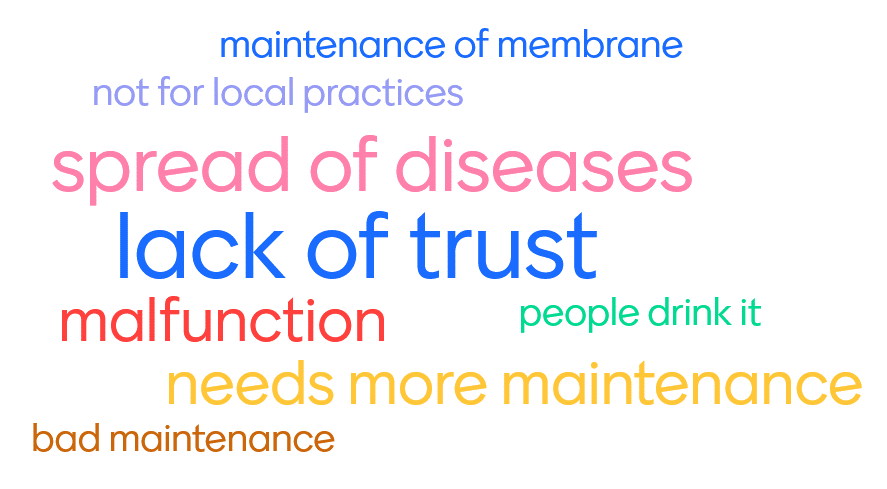Hygiene in health care facilities
Promoting hand hygiene is crucial to decrease the transmission of infectious diseases. In Mali and Burkina Faso, the hands4health project focuses on developing a holistic approach to hand hygiene, water quality and sanitation in primary health care facilities (HCFs) disconnected from a functional water supply system. Primary health care facilities were chosen as study clusters for several reasons:
- Research on handwashing habits often focuses on communities rather than HCFs in low- and middle-income countries (LMICs)
- Access to water in HCFs is crucial to avoid the spread of health care-associated infections (HAIs)
- Research on HAIs in primary HCFs in LMICs is very scarce
Finally, if health care workers (HCWs) can protect themselves from infections, the health care facilities are more likely to have a sufficient number of staff members, who can then deliver their services to the population.
Focus group discussions
As part of the pilot phase of the hands4health initiative, focus group discussions (FGDs) were carried out in 18 HCFs in Mali and 9 HCFs in Burkina Faso. The FGDs were organised and implemented by the Swiss Tropical and Public Health Institute (Swiss TPH), in collaboration with the local Terre des hommes (Tdh) offices. The goal was to assess the understanding of HCWs on hygiene and the expected positive and negative impacts of the Gravit’eau interventions. The insights obtained from the discussions were integrated into the study design, to ensure for a more contextualised intervention, that meets the needs of the different target groups.
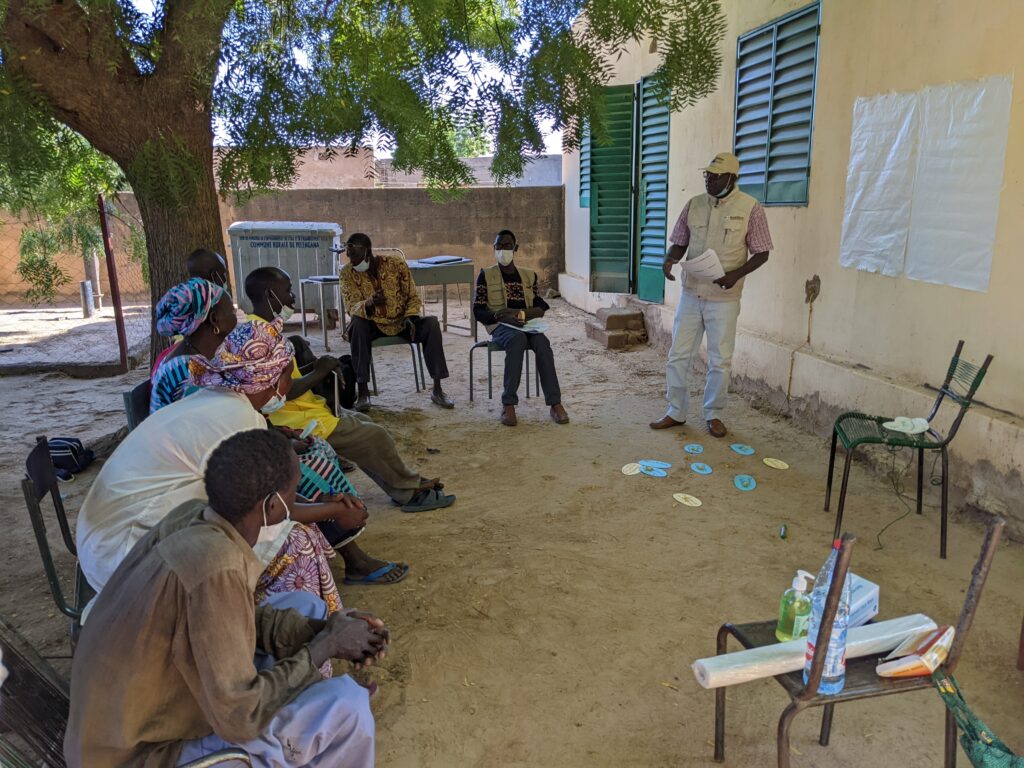
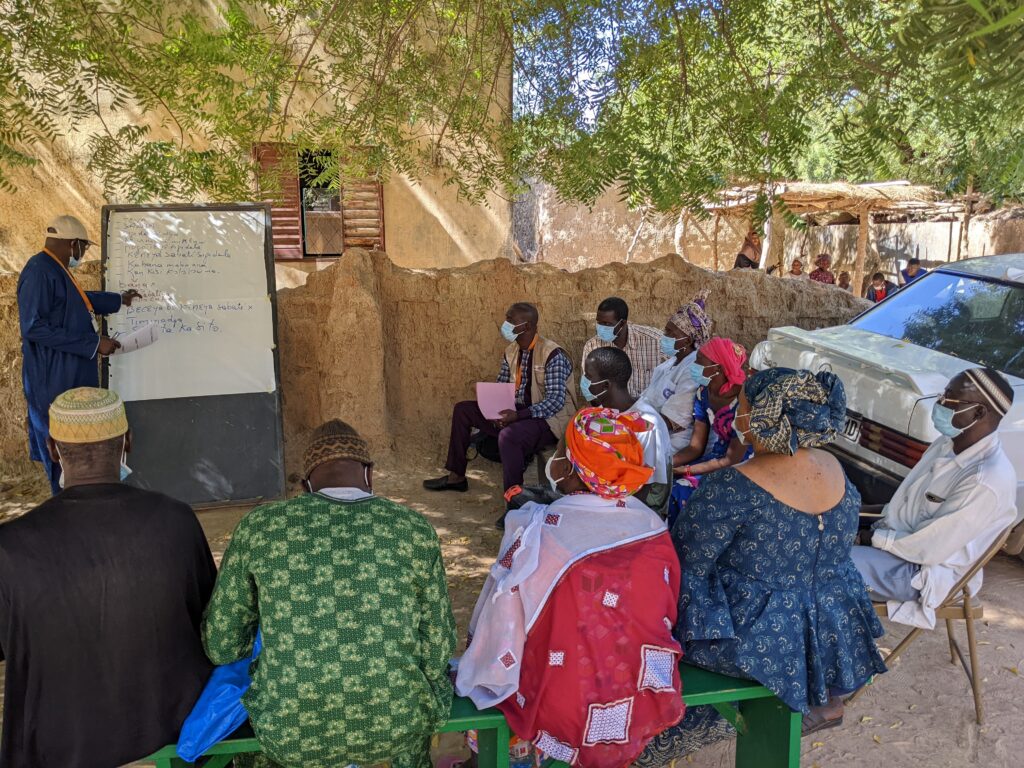
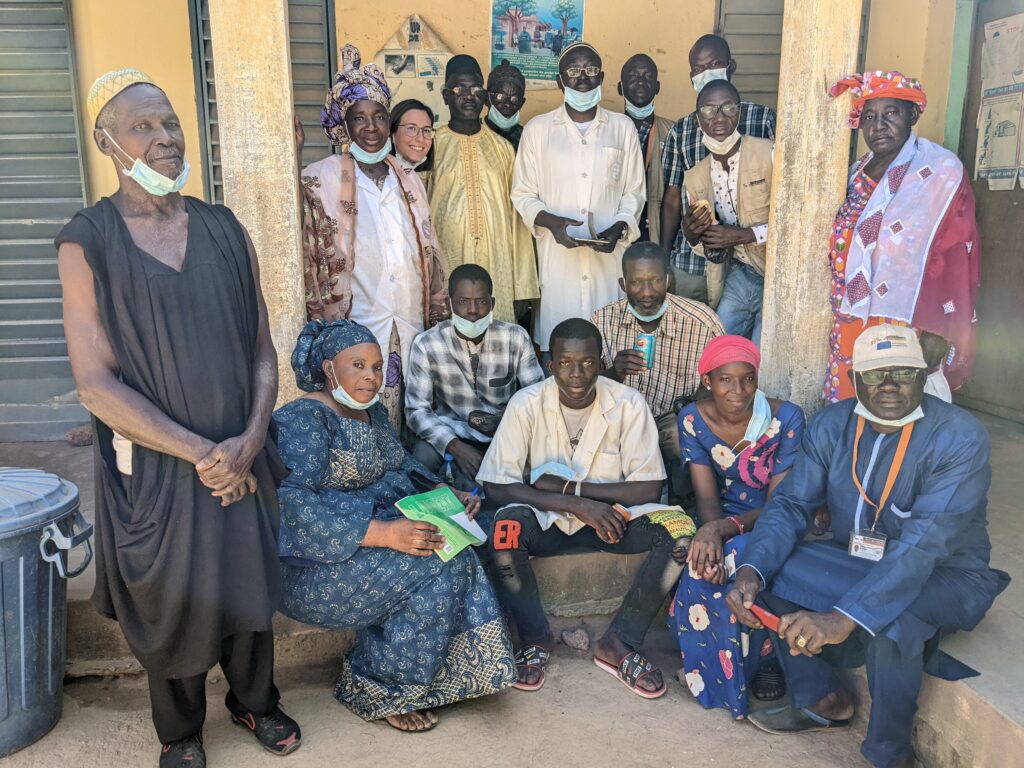
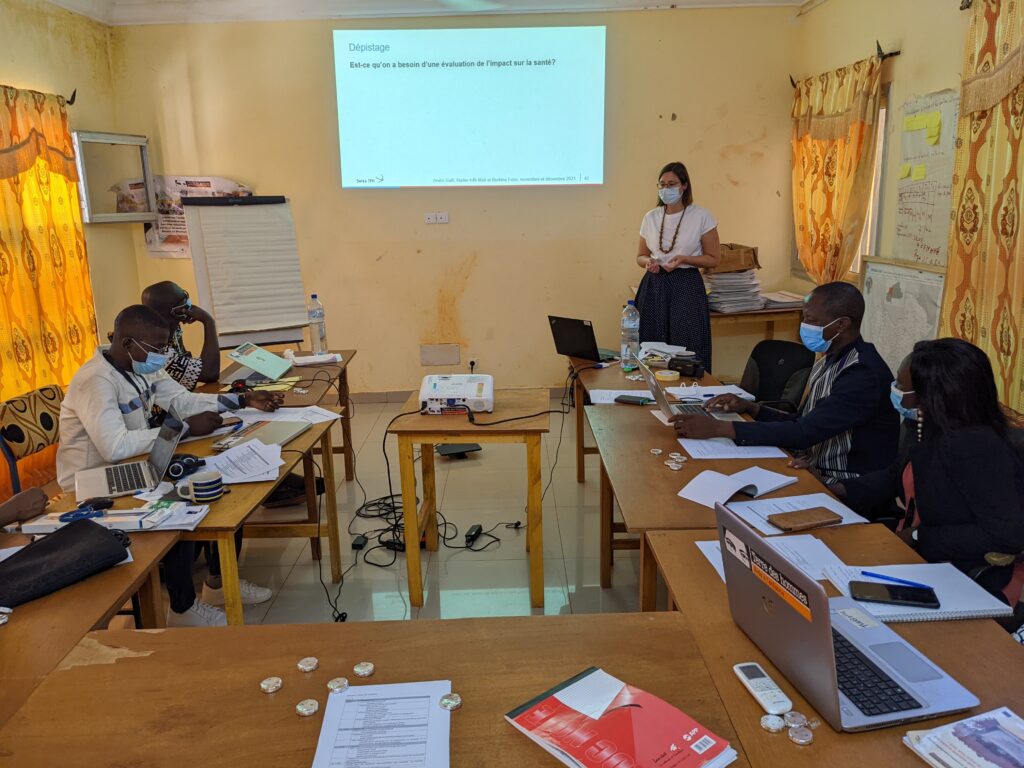
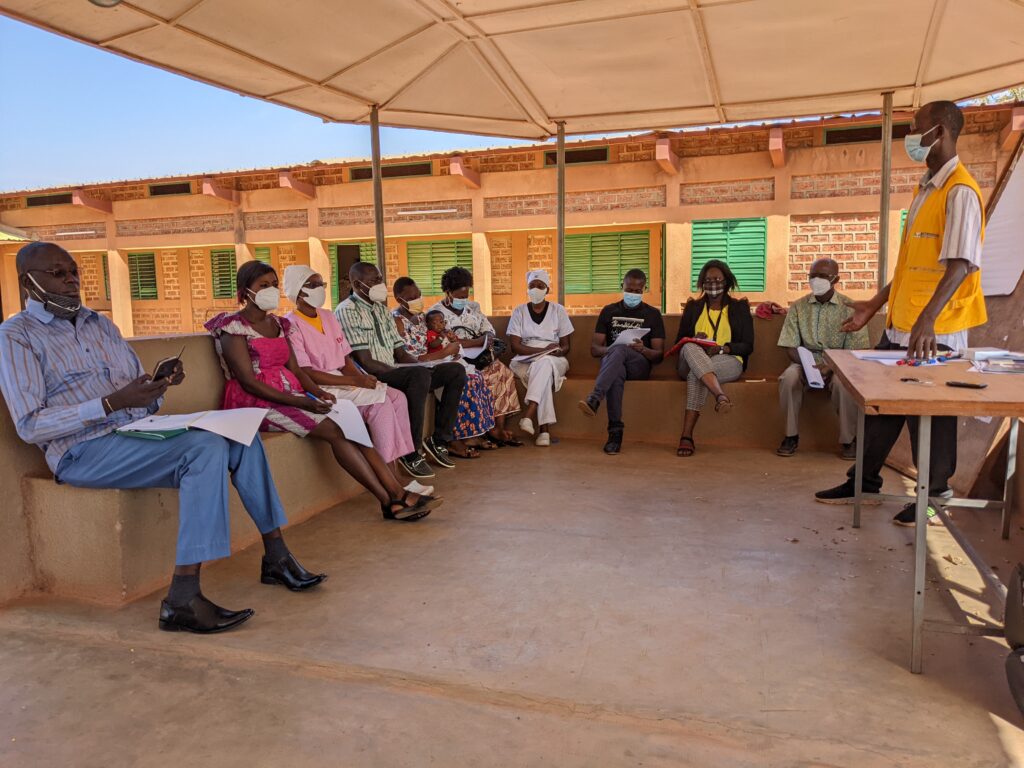
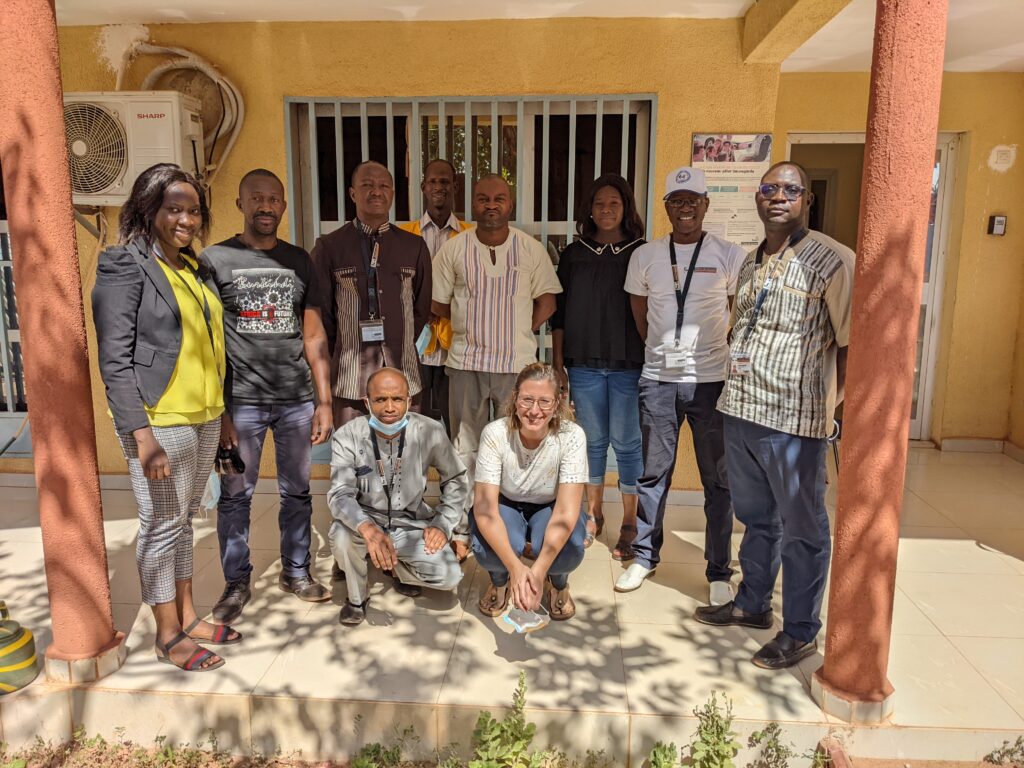
Preliminary results: FGDs in Mali
The preliminary results of the FGDs in Mali showed that insufficient understanding, poverty and lack of access to water play key roles in the problems related to hygiene in HCFs. Due to the poor conditions, there are no financial means for water and soap. Additionally, the water pumps often do not work, which hinders adequate hygiene practices. Lack of motivation, as well as insufficient sensibilisation and education of HCWs, were also indicated as reasons for the hygiene problems in HCFs.
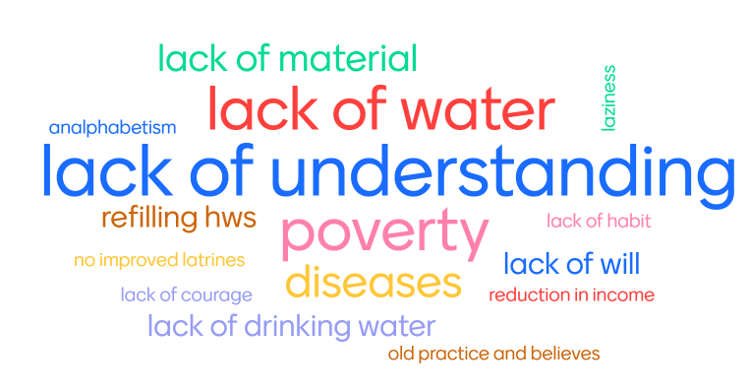
Expected positive effects of the Gravit’eau interventions mentioned by the discussants included increase in health and hygiene levels, the reinforcement of handwashing practices, a solution to the water shortages, and many others.
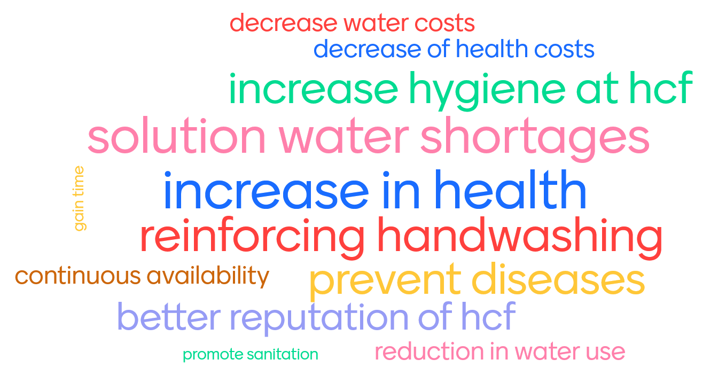
Expected negative effects comprised the proliferation of diseases due to system malfunction, lower durability as a result of misuse, additional maintenance efforts, among others. Potential solutions to avert these impacts included: (i) Establishing a maintenance and surveillance committee; (ii) Providing training for HCWs and patients; (iii) Regular inspection of the Gravit’eau systems, including periodic water changes; and, (iv) Availability of maintenance materials.
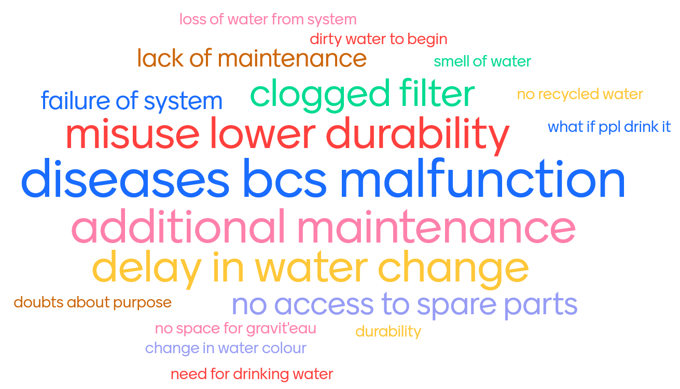
Preliminary results: FGDs in Burkina Faso
The preliminary results of the FGDs in Burkina Faso showed that the lack of handwashing habits plays a major role in the problems related to hygiene in HCFs. Similarly to the results obtained in Mali, insufficient understanding, scarce economic resources and lack of access to safe water were also mentioned. Open defecation, as well as improper access to handwashing stations and hygiene materials (such as soap and sterilisation consumables), were also highlighted as reasons for the hygiene problems in HCFs.
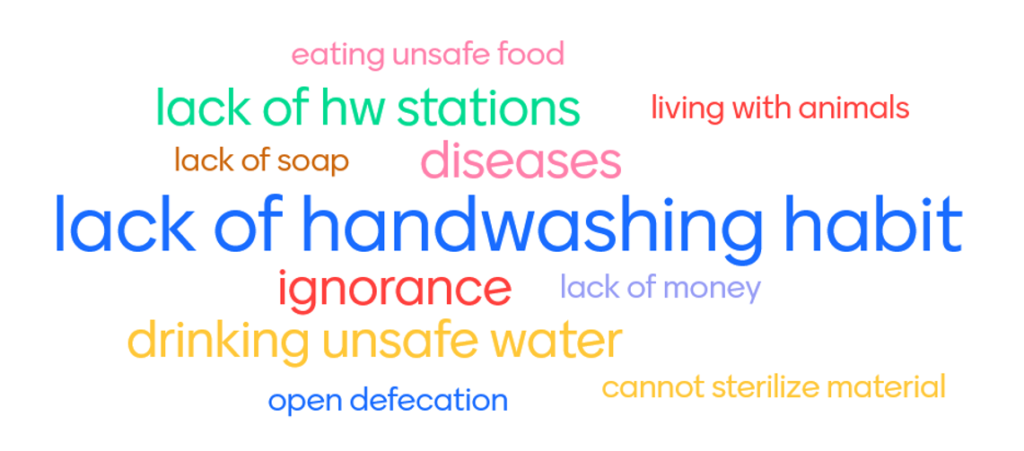
Expected positive effects of the Gravit’eau interventions mentioned by the discussants included infection prevention, water availability and saving, regular handwashing, improved reputation of the HCF, and many others.
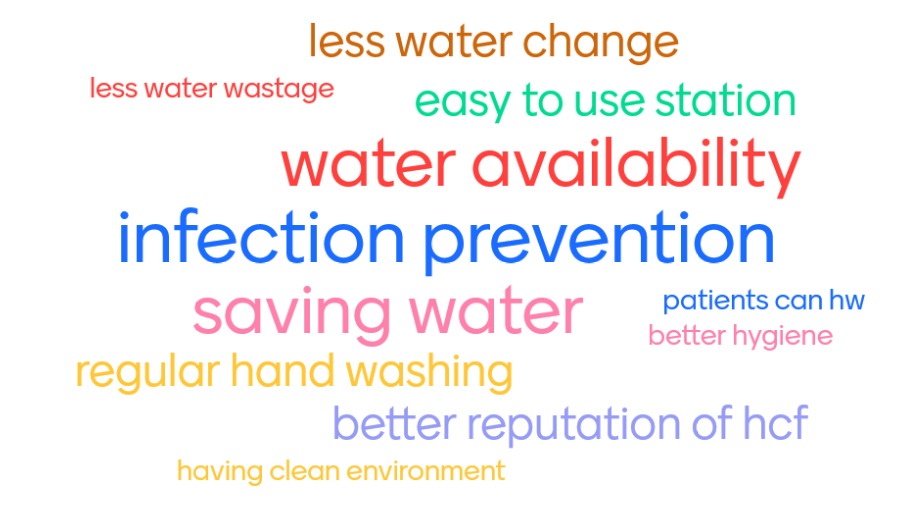
Expected negative effects comprised the spread of diseases, lack of trust, system malfunction, additional maintenance efforts, among others. Potential solutions to avert these impacts included: (i) Carrying out sensibilisation campaigns on the use of recycled water; (ii) Providing training for HCWs and patients; and, (iii) Regular inspection of the Gravit’eau systems, including periodic laboratory analysis of the water quality.
